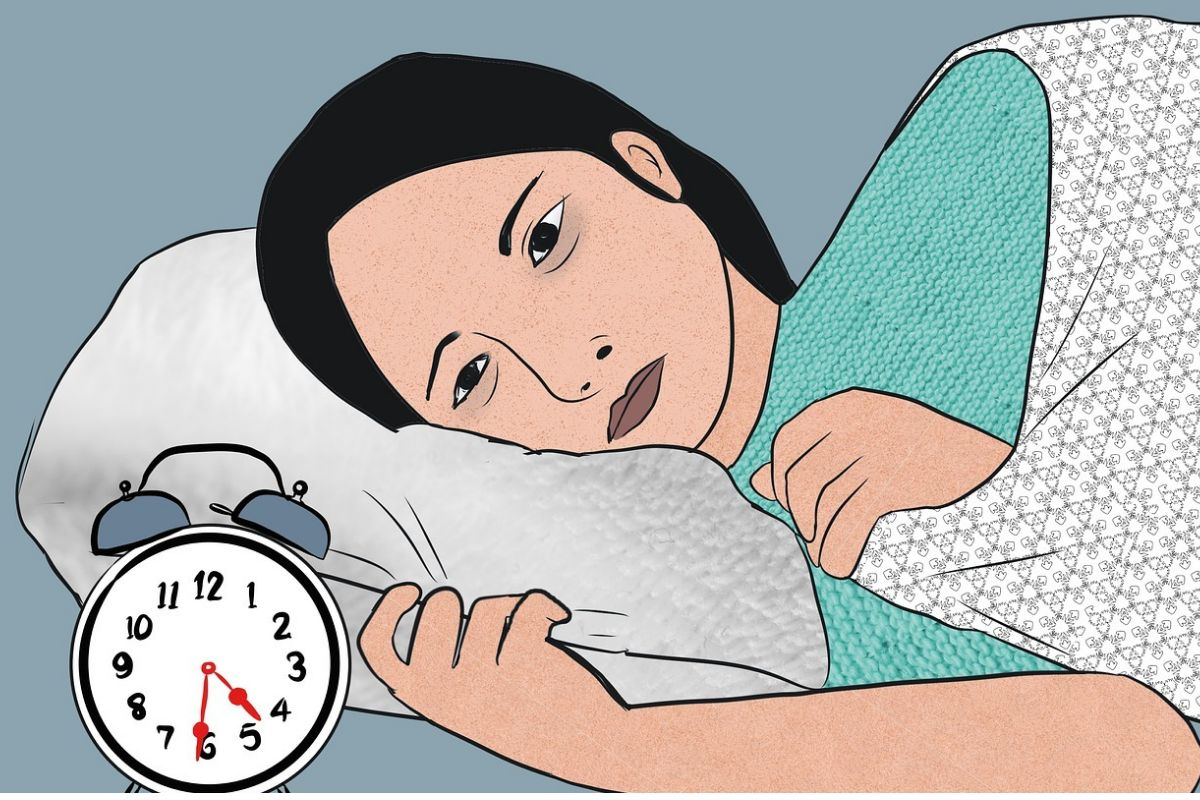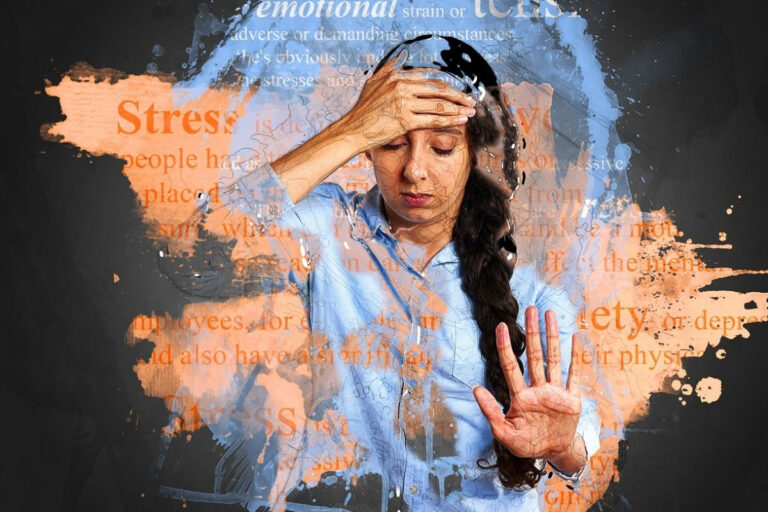Stress-Induced Insomnia Is a Brutal Cycle
Too much stress and not enough sleep are a deadly combination. But on the other hand, relaxation and sleep are two things that can genuinely make a difference in how your body and mind react to anxiety. Without those two elements, you risk slowing down or shutting down.
It’s hard to determine which needs to be dealt with and fixed first – the stress or insomnia, but they will worsen unless at least one is settled. The effects of stress on your mind and body can slow your productivity and make your life much less enjoyable.
Stress can be fixed if you commit to seeing it through. Then, sleep should come more quickly after the stress factors are reduced.
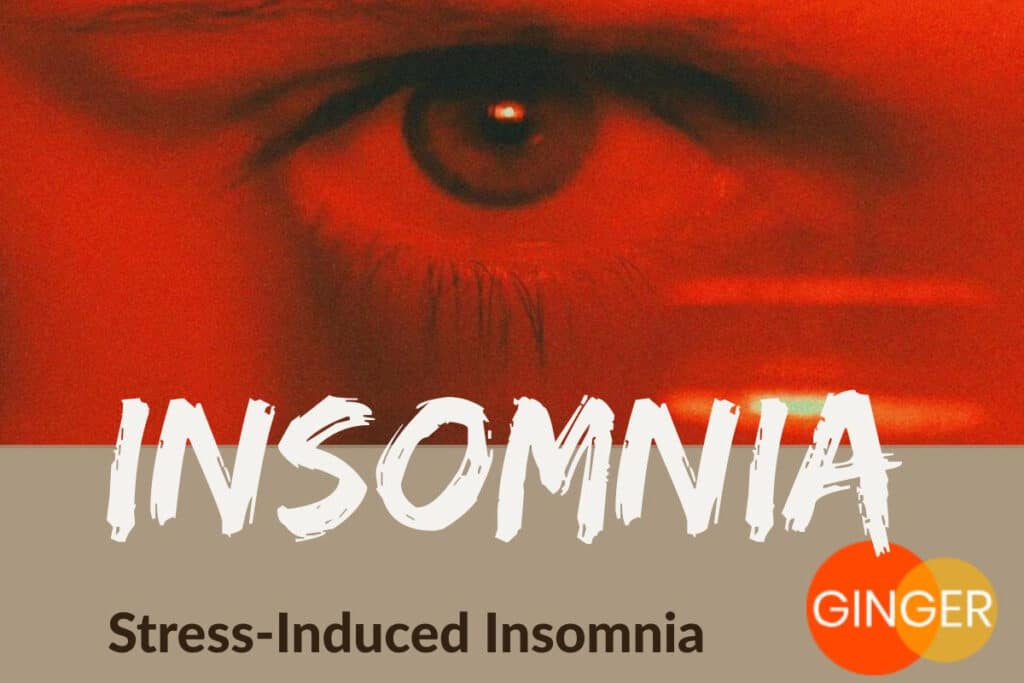
Causes of Stress-Induced Insomnia
Too much stress in your life may cause insomnia and vise-versa. When you try to get through the day without enough sleep the night before, everything you must do is magnified, and your stress levels can soar.
Sleep times vary from one person to another, but most adults should get 7 to 8 hours per night to keep up energy levels and mental acuity to get through the work day and maintain a good quality of life.
You may experience a short-term bout of acute insomnia lasting only a few days. A stressful event might trigger this type of insomnia, but if you share it for over a month, the problem could be caused by too much daily stress.
Insomnia might also be induced by certain medications or a medical condition you’re dealing with. Insomnia is defined as a sleep disorder that causes you to have trouble falling asleep and staying asleep.
You may wake up too early – without being able to get back to sleep — and feel tired when it’s time to start the day. If you think you have chronic insomnia, take note of what the causes might be.
Stress-induced insomnia may result in worrying or serious concerns about your health, finances, work, or loved ones. You may also experience stress-induced insomnia if you’ve just gone through a divorce or lost a loved one.
Other causes of insomnia include changing your circadian rhythms and disrupting your body’s temperature or metabolism. An irregular sleep schedule could also cause insomnia or an uncomfortable bed or sleep environment.
Overeating just before bedtime can also cause disruptions in sleep. It could also trigger heartburn, acid reflux, and other issues that may keep you awake. In addition, anxiety, post-traumatic stress disorder (PTSD), and depression may also be causes of insomnia.
Symptoms and Risks of Stress-Induced Insomnia
Coping with the symptoms of stress-induced insomnia can make you feel disconnected from almost everyone and everything. As a result, you’re not as mentally alert and might also be irritable and anxious.
Depression may cause other problems, such as fatigue and the inability to focus on anything. You may never feel well-rested, even when you think you get a good night’s sleep.
Obsession over the sleep you’re missing is a symptom that can keep you from doing well at other tasks, and you may have trouble paying attention – which can cause accidents and errors.
Mood swings are also symptoms of stress-induced insomnia. In addition, tension, headaches, and aches in the shoulders and neck are caused by stress and can keep you from getting a good night’s sleep without help from medications or relaxation techniques.
Socializing is not an insomnia issue. Still, if you’re finding it difficult to be around people, you may experience more stress by not being able to keep up with socializing as you once did.
Some gastrointestinal symptoms, such as diarrhea or constipation, might creep into your life. This, too, can lead to more severe health problems. Anyone who has chronic stress-induced insomnia is more at risk for developing chronic diseases and other health complications.
Stress-induced insomnia has devastating effects, like heart disease, diabetes, and premature aging. It can also lead to overeating, increased substance use or abuse, and decreased physical activity.
All of these activities can have negative impacts on our health. An example is getting cold due to chronic stress and lack of sleep. This is because we become less immune to cortisol, which helps protect us from illnesses and viruses.
Stress-induced insomnia can cause weight gain, increasing your craving for sugary, fatty, and starchy foods.
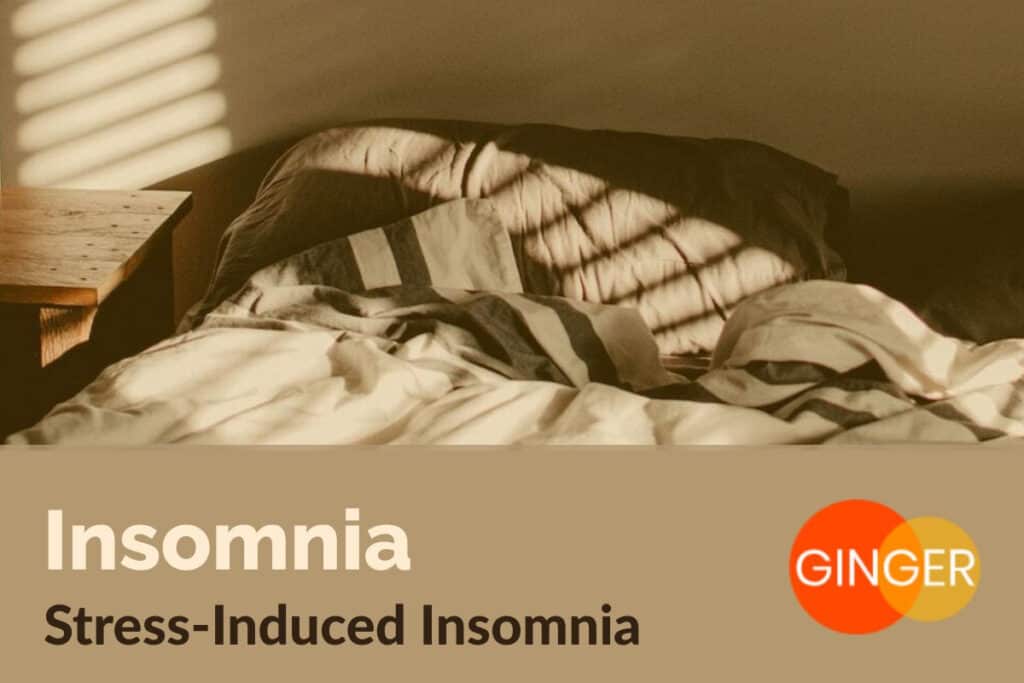
Lack of sleep can elevate stress hormones and make you more prone to overeating. Also, seniors with insomnia due to stress may find it harder to recover from medical treatments or operations.
Heart disease caused by stress and insomnia can encourage plaque in the blood vessel walls – a critical factor in heart disease. Depression is also a component of long-term, stress-induced insomnia. It’s triggered by the brain’s neurotransmitter systems going out of balance.
Digestive problems can also be exacerbated by stress-induced insomnia. Ulcers, Crohn’s disease, irritable bowel syndrome (IBS), and ulcerative colitis are all inflammatory health issues caused by changes in the balance of bacteria in the stomach.
Insufficient sleep can lead to muscle tension and result in a sore neck, shoulders, and back when you wake up. In addition, stress during the day at work or home may worsen the pain or cause inflammation, making it more difficult to heal.
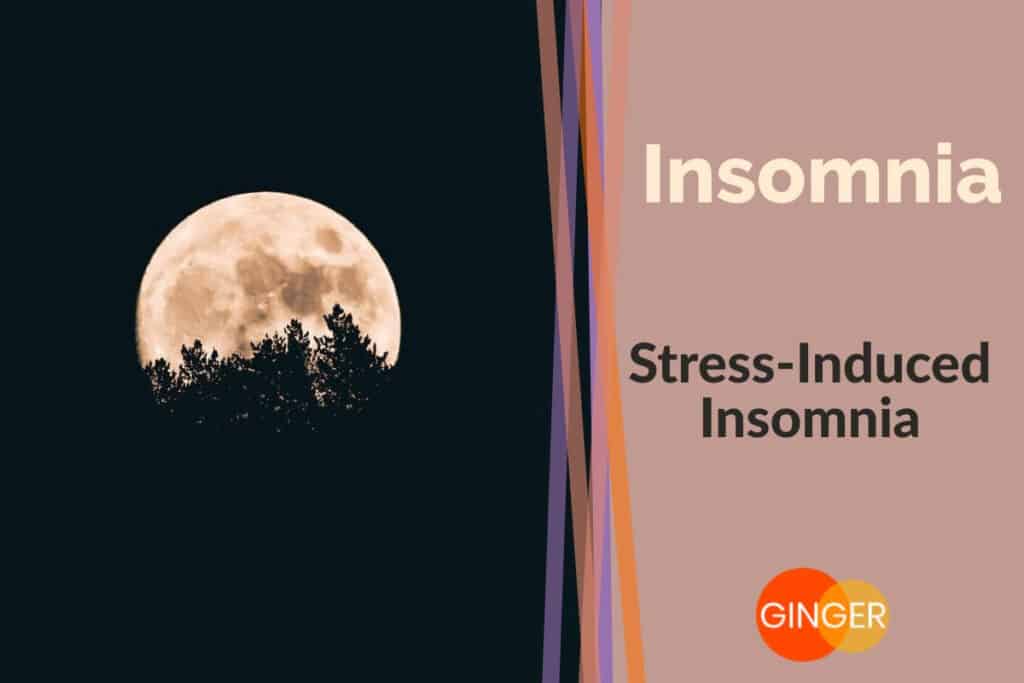
Treatments for Stress-Induced Insomnia
Within the medical realm, there are treatments for stress-induced insomnia that include corticosteroids, alpha-blockers, statins, ACE inhibitors, and glucosamine/chondroitin. In addition, you may need sleep medication if you’ve tried relaxation techniques but can’t get a good night’s sleep.
But other techniques can also help and won’t be as harmful to your body. For example, cognitive behavioral therapy (CBT-1) is one way to solve stress-induced insomnia. This treatment helps eliminate the negative thoughts that bombard you at night and keep you from restful sleep.
As a cognitive treatment, CBT-1 helps you identify and change negative thoughts and eliminate worry. The behavioral part of the treatment encourages good sleep habits and avoiding those negative habits that may keep you awake.
Relaxation techniques that include biofeedback, breathing exercises, and progressive muscle relaxation are gentle ways to relieve anxiety at bedtime and help you relax. Stimulus control therapy is another method that trains your body and mind to be consistent at rest.
For example, you might avoid daytime naps, set a specific time to wake up and leave the bedroom after you’ve tried unsuccessfully to go to sleep for twenty minutes – and return when you become sleepy. Also, it’s recommended that you only use the bed for rest and sex, not watching television, working, or reading.
Light therapy can be used if you fall asleep too soon and wake up too early. The light is used to set back your internal clock. Sleep restriction therapy makes you feel more tired at night until you get into bed for the appropriate amount of time you need for sleep.
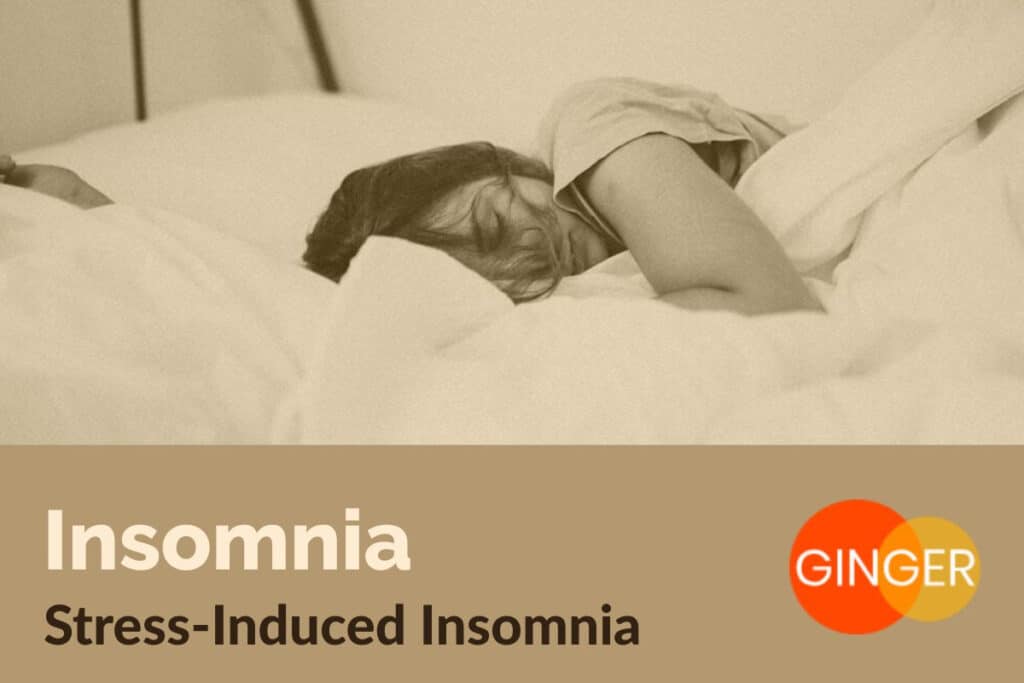
Paradoxical intention is a method you can use to lessen the anxiety you feel about trying to get to sleep by getting you to try and stay awake after you go to bed rather than trying to go to sleep.
Sleep aids that you can purchase over-the-counter and aren’t as powerful as most prescription drugs contain antihistamines that may make you drowsy. In addition, it’s recommended that you don’t use these sleep aids regularly as they may affect you during the day with dizziness, cognitive issues, and difficulty urinating.
Your doctor may begin the search to see how to help stress-induced insomnia with a physical exam. In addition, a blood test may be done to see if you have thyroid problems. You may also need to journal your sleep habits over a few weeks.
Sleep studies are done if nothing seems to help your insomnia or control the stress keeping you awake at night. You’ll spend the night at a sleep center, and during that time, your breathing, heart and brain waves, and eye and body movement will be monitored.
Other than the above treatments, specific relaxation techniques before bedtime help relax and prepare for sleep. Yoga, stretching, and breathing has been tried and accurate method for decades to relieve stress.
Meditation is also a good idea to keep your mind away from stressful thoughts. Listening to relaxation music and guides to relaxation may also be helpful to lull you into a good night’s sleep.
Home remedies for insomnia haven’t been proven effective, but you may want to research to discover if one might be good for you. For example, Melatonin is an over-the-counter herbal medication considered safe but not regularly.
Acupuncture also helps reduce stress and promote a good night’s sleep. Be sure to find an experienced practitioner. Valerian is also herbal-based and acts as a mild sedative.
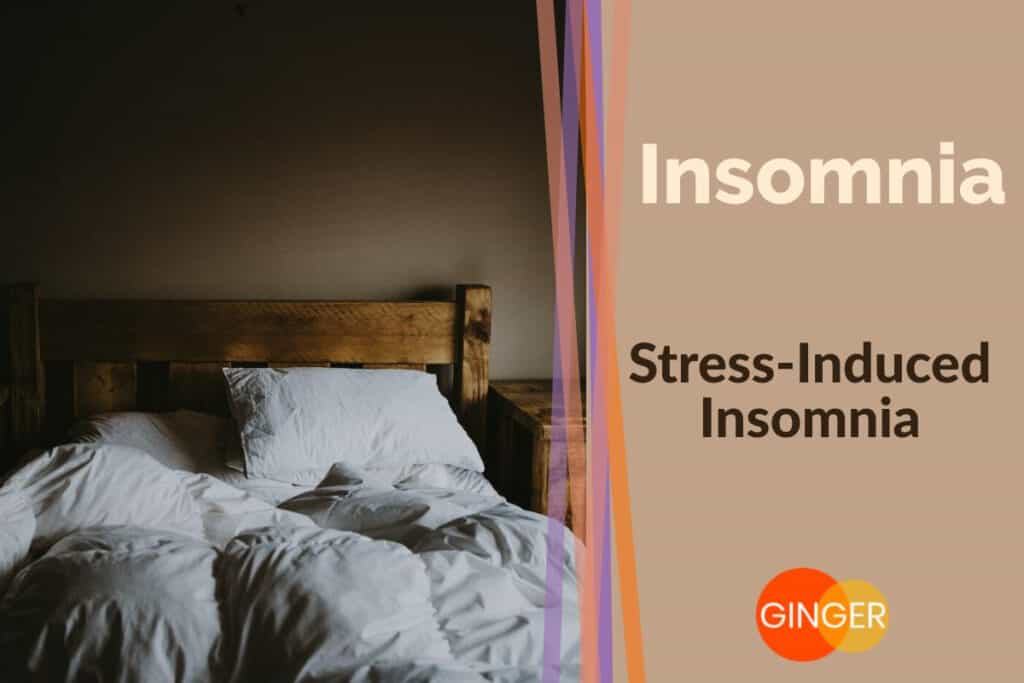
Strategies to Avoid Stress-Related Sleep Problems
To avoid insomnia caused by stress, the best thing to do is take preventive measures. Otherwise, recovering a regular sleep pattern could be a long process.
- Setting boundaries, such as dedicating time to family or avoiding work emails and calls in the evening, is one way to combat work-related stress that can lead to insomnia.
- Refusing to take on such an abundance of requests causes you significant distress. So instead, decline the ones that do not hold the utmost importance. For instance, don’t continuously check your emails. Instead, schedule a specific time during the day and let them be until the sun sets so that you can consider fewer distractions.
- Prioritize the activities you enjoy in the evening. Put your wants and needs first when it comes to winding down instead of accommodating requests from others.
- At home, put away your cell phone and unwind before bed. Conversation or relaxation with no distractions, such as television, is recommended.
- Watching the news can cause stress, so set a limit of 30 minutes or less for your daily news consumption. Additionally, turn off your computer when you’re trying to unwind.
- Staying active during the day is essential. Exercise helps reduce stress and promote good sleep habits. Try to stick to the same bedtime each night, including weekends, when possible.
- Decrease your consumption of caffeinated drinks, alcoholic beverages, and smoking if applicable. These substances can make it difficult to fall asleep, so cutting them out can help you sleep better.
- Establishing a bedtime routine can promote relaxation and prepare you for restful sleep. Some calming activities, such as taking a warm bath, listening to soft music, or reading for a few minutes, can be beneficial in winding down and helping you drift off.
- If your child or teen has trouble sleeping due to stress, it is essential to determine the cause quickly to avoid potential depression and other health complications.
- If sleep deprivation impacts your daily functioning, seeing your doctor would be beneficial. You may require specialized treatment rather than store-bought remedies.
Achieving a healthy lifestyle requires getting adequate sleep and exercise, just as much as having a proper diet — not doing so can cause long-term issues with your quality of life, potentially including stress and sleep disturbances.

